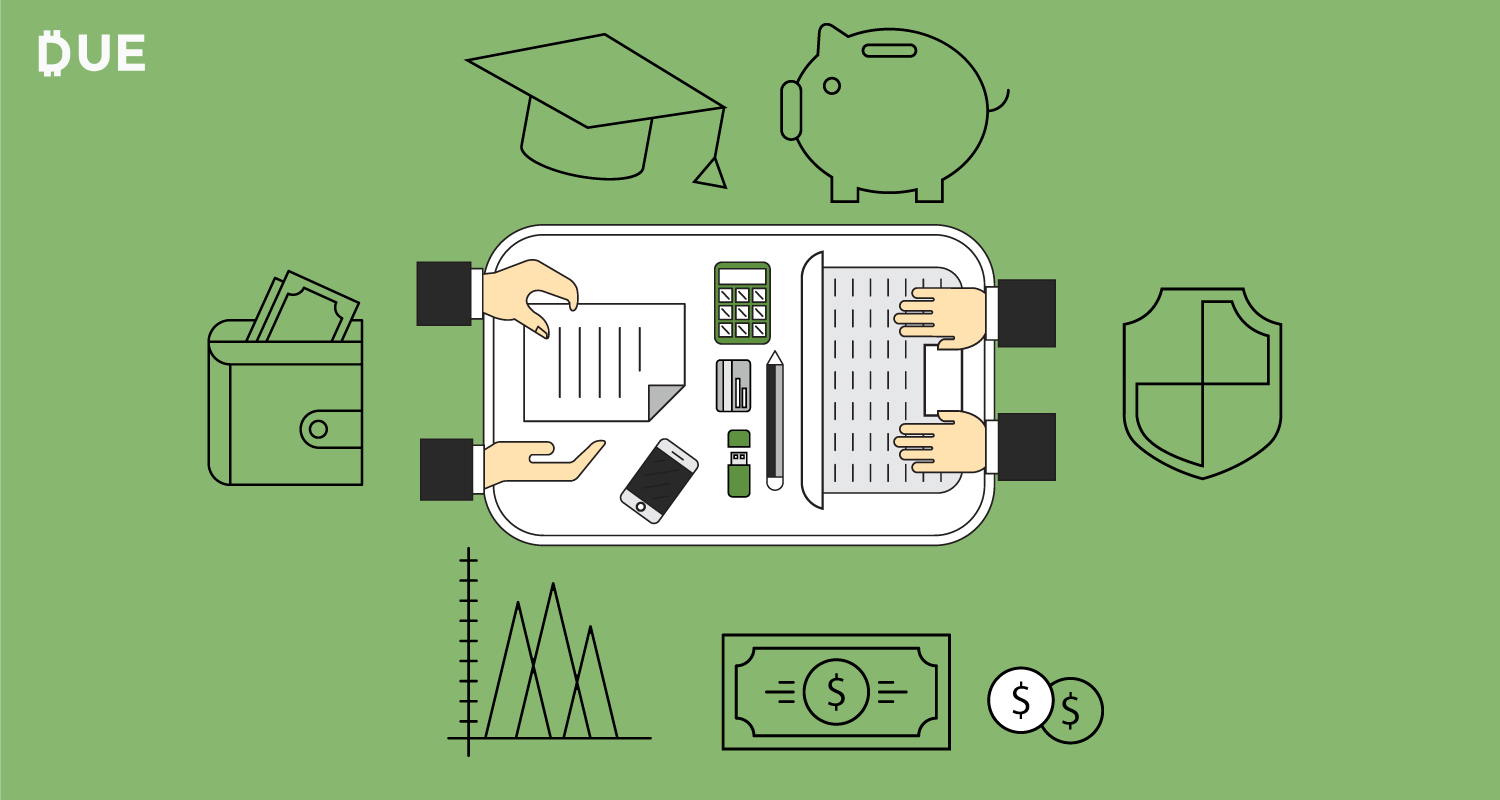Recently on a cool and dreary Saturday, I decided to go all Marie Kondo to my bedroom closet. During this process, I came across a photo album containing pics from high school. Naturally, that sent me down memory lane.
I’m not going to bore you with all the details. But, I began reflecting on my senior high school years. And that day made me think about the classes I took in high school.
One of the first classes the popped up was the series of “skills” classes. When I signed up for the series — I thought it would be a filler class that I would breeze through. However, it turned out to be one of the most useful classes I’ve ever taken in both high school and college.
Throughout the year, we were taught the basics, like sewing and cooking fundamentals. We were even taught how to balance a checkbook and create a barebones budget. While we didn’t become experts, all subjects that I learned in the class have served me well throughout life. We even learned a bit of home decorating on a budget — and yes, that meant “cheap.”
Unfortunately, I don’t know if many educational institutions still offer such a course. There seems to be more of a focus on standardized testing now. And, that’s a real shame.
Table of Contents
ToggleThe importance of learning about finances.
Learning how to cook is a necessity — you have to eat to survive, obviously. Even better the learning in the cooking portion of the class has stood the test of time. It was suggested that eating actual foods — like an apple, an avocado, and scrambling up an egg is better for you than McDonald’s. Who knew?
Sewing can come in handy in a pinch and potentially save you a couple of bucks.
But, when it comes to finances — this is an area that most people aren’t familiar with. Unless parents were sticklers on teaching you about money — you’re on your own.
When it comes to money, Americans desperately need to understand basic financial concepts. After all, it’s been found that only 29% of Americans consider themselves financially healthy.
The rest of the country? Well, according to one survey:
- 78 percent of U.S. workers live paycheck to paycheck to make ends meet
- Nearly one in 10 workers making $100,000+ live paycheck to paycheck
- More than 1 in 4 workers do not set aside any savings each month
- Nearly 3 in 4 workers say they are in debt today – more than half think they will always be
More concerning? Amid the COVID-19 pandemic, 40 percent of Americans reported that they couldn’t swing a $250 unexpected expense. And, an outstanding 64 percent aren’t prepared for retirement.
As a consequence, the lack of financial knowledge creates a vicious debt cycle. Because money is tight, you continually borrow, which increases debt and costs. If you’ve ever been in this situation — then you know just how stressful it can be.
Furthermore, there are troubling financial trends now that you should be aware of. You should always be aware of financial trends because they affect everything in your life — but I digress.
An example of a concerning trend — if you’re expecting Social Security to be there when you retire — you may be disappointed. It’s anticipated that by 2034 the Social Security trust fund may be depleted.
Such rumors were around when I was younger, too — but the pandemic makes it even more clear that diversification in your finances is a must.
The benefits of acquiring financial information.
Thankfully, it doesn’t have to be that way. If you carve out just a little bit of time to become more financially literate, you’ll break free of this cycle. The reason? You’ll be able to accomplish the following:
- Overcome your fear of budgeting. Even with tools like apps, creating and sticking to a budget can be overwhelming. However, a budget is essential to ensure that you achieve your financial goals and live below your means.
- Have a plan for emergencies and retirement. Again, most folks can’t manage an unexpected expense. However, financial literacy can help you build a financial emergency fund so that you’re ready for life’s curveballs and can enjoy your golden years.
- Stomp out the unnecessary. Americans spend almost $18,000 per year on nonessentials. That money could be used to build a savings account or pay off high-interest debt. When you’re financially educated, you’ll be able to determine what’s essential and what’s not.
- Avoid big-spending mistakes. Whether if it’s going to Starbucks every morning or driving around in a car, you can’t afford, both can derail your financial future. Being financially savvy will ensure that you don’t make these costly mistakes.
- Protecting your money. You work hard for the money. So, you want to make sure that it’s protected, like diversifying your investments and ensuring it’s insured.
Where to learn about finances.

Are you ready to step-up your finance game? If so, here are the best places where you can learn about finances. While you may not become an expert, you will at least become knowledgeable in the basics so that you’ll conquer all of your financial goals.
Hit the books
“There is more treasure in books than in all the pirate’s loot on Treasure Island.” — Walt Disney
When it comes to learning about any topic, is there anything better than a good, old-fashioned book? I doubt it.
Personally, I love to read during my downtime. I also have a habit of keeping my favorite books so that they’re always there for me to reference. And finance books are no exception.
Unlike a blog post, books provide a deep dive into a particular topic. For example, if you’re a millennial who is buried in debt, you could flip the pages of “Broke Millennial: Stop Scraping By and Get Your Financial Life” Together by Erin Lowry.
With that in mind, here are ten titles that you may want to read, depending on the financial area that you want to enhance.
- “How to Manage Your Money When You Don’t Have” by Erin Wecks
- “Why Didn’t They Teach Me This in School: 99 Personal Money Management Principles to Live By” by Cary Siegel
- “Think and Grow Rich” by Napoleon Hill
- “Rich Dad, Poor Dad” by Robert Kiyosaki and Sharon Lechter
- “The Little Book of Common Sense Investing: The Only Way to Guarantee Your Fair Share of Stock Market Returns” by John C. Bogle
- “The Total Money Makeover” by Dave Ramsey
- “The Automatic Millionaire: A Powerful One-Step Plan to Live and Finish Rich” by David Bach
- “Your Money or Your Life: 9 Steps to Transforming Your Relationship with Money and Achieving Financial Independence” by Vicki Robin
- “I Will Teach You To Be Rich” by Ramit Sethi
- “Beating The Street” by Peter Lynch
Subscribe
I’m not talking about a Netflix subscription here. Instead, I’m referring to magazines and newsletters. These publications provide general and niche financial advice, but they are more timely than books.
While you may have to pay for magazine subscriptions, they’re definitely worth the investment. Or, you could probably just visit a local bookshop or library and read them for free. As for newsletters, they’re usually free to sign-up for.
If you need some suggestions, here are ten of my personal favorite magazines and newsletters that I read daily:
- Forbes
- The Economist
- Barron’s
- Kiplinger’s
- The Wall Street Journal
- Morning Brew
- Robinhood Snacks
- Motley Fool Stock Advisor
- Clark Howard’s Money-Saving Newsletter
- Jill on Money
Go surfing
Not literally. But, if you’re able to catch some waves right now, then why not? Rather, I’m talking about visiting the following websites.
Just like magazines and newsletters — they’re up-to-speed on the latest trends and news. Moreover, they’re chuck full of advice on various topics ranging from how to live frugally to choosing the best credit card to how to invest wisely.
- Due
- Money 101 at CNN Money
- The Penny Hoarder
- Bankrate
- Nerd Wallet
- Wise Bread
- MyMoney.gov
- BankingSense
- Yahoo Finance
- Dave Ramsey’s 7 Baby Steps
Listen up
I’m also a big fan of podcasts. I usually listen to them when commuting, cleaning the dishes, or going for a walk.
Best of all? Podcasts are like having your own personal financial advisor — without having to drain your bank account. But, among the thousands of podcasts out there, which ones are deserving of your time?
- For finance beginners, check out “So Money” hosted by financial expert Farnoosh Torabi.
- If you’re looking for ways to get out of debt and making investing tangible, “BiggerPockets” is right up your ally.
- Want to achieve financial independence? Then you have to listen to “ChooseFI.”
- Earning a passive income is one of the best ways to get out of debt or pad your savings. Pat Flynn’s “Smart Passive Income” is one of the best resources available to help you earn an additional revenue stream.
- If you have a family, then “Marriage, Kids, and Money” certainly needs to be on your radar.
- Are you a millennial who wants to get their finances in order while still enjoying your life? financial planner Shannah Compton Game has got your covered with “Your Millennial Money.”
- “Planet Money” is a classic show from NPR that explains what’s going on with the economy in just 30-minutes.
- If you want to become more knowledgeable and inspired on topics like how to retire by 40, then “Brown Ambition,” which is hosted by Tiffany “The Budgetnista” Aliche and Mandi Woodruff, deserve a listen.
- “This is Uncomfortable” certainly lives up to its name. The podcast from Marketplace shares financial horror stories so that you won’t make the same mistakes.
- Looking to make the stock market work for you? Then the “InvestED Podcast” hosted by hedge fund manager Phil Town and his daughter Danielle is a great starting point.
Go back to school
There is no shortage of in-person or online courses available to help you become more educated about finances. In my opinion, these are ideal if you’re a more hands-on learner. And, they are definitely helpful if you are having difficulty grasping a more complex topic.
Even better, most of these courses are either free or incredibly affordable. After all, unless you’re pursuing a finance career, you probably don’t have to obtain a four-year degree from a university.
An example of this would be Khan Academy. It’s completely free. And the site offers courses in everything from Macroeconomics to budgeting to an overview of personal taxes.
With that in mind, here are some online courses that you might be interested in attending.
- Suze Orman’s Personal Finance Online Course
- Personal Finance, Brigham Young University
- Income Tax Preparation, H&R Block
- Investopedia Academy
- Planning for a Secure Retirement, Purdue University
- Personal and Family Financial Planning, Coursera
- Financial Literacy, ALISON
- Behavioral Finance – Duke University
- Investing in Yourself, edX
- Understanding Loans, Udemy
Talk to a pro
Finally, pick the brain of an expert. Obviously, you don’t want to pester them. But, if you have a friend or family member who is an accountant, for example, ask them questions and listen to what they’re saying.
If you have a chance, and they’re cool with it, spend a little time in your accounting apartment. Grab lunch with your CPA. And, schedule meetings with those taking care of your finances so that you can track their progress and make sure everything’s on the up-and-up.















